SAFOD in partnership with ten (10) organizations of persons with disabilities (OPDs) in eight (8) countries in Southern Africa is leading a 3-month campaign to raise awareness on assistive technology, funded by UNOPS & AT Scale, the Global Partnership for Assistive Technology. The project partners in the eight countries are namely FEDOMA in Malawi, FODPZ in Zimbabwe, NFPDN in Namibia, FODSWA in Eswatini, DPSA in South Africa and BOFOD in Botswana, ZAFOD & VILOLE Images Production in Zambia, LNFOD & LNLVIP in Lesotho. This campaign seeks to create visibility and build momentum towards the commemoration of World Assistive Technology Day. The objective of this campaign is Increased meaningful participation and engagement of persons with disabilities to lobby and advocate for awareness on the provision of high quality and affordable assistive technology in their respective countries.
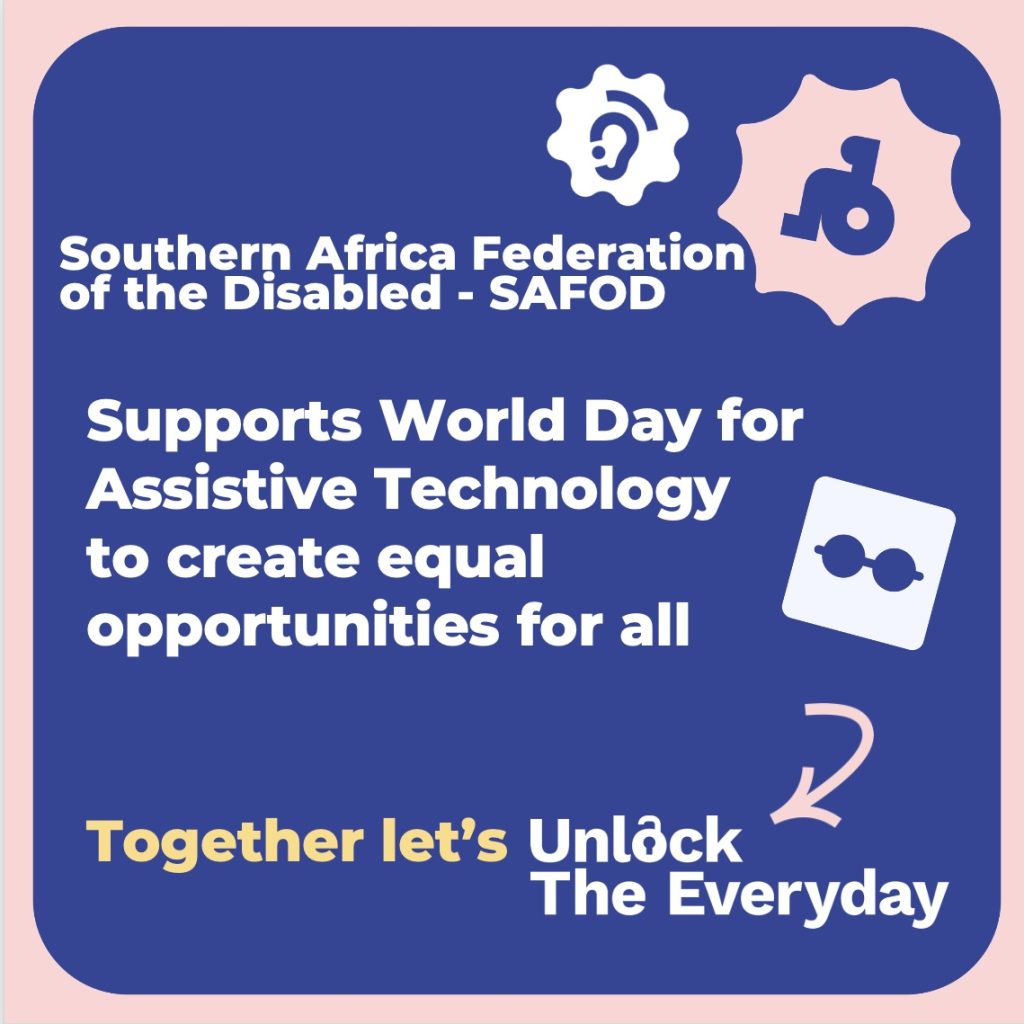
The campaign is implemented at a national through activities at a pre commemoration stage which build momentum towards the commemoration of the World Day for Assistive technology. These activities include social media campaigns.
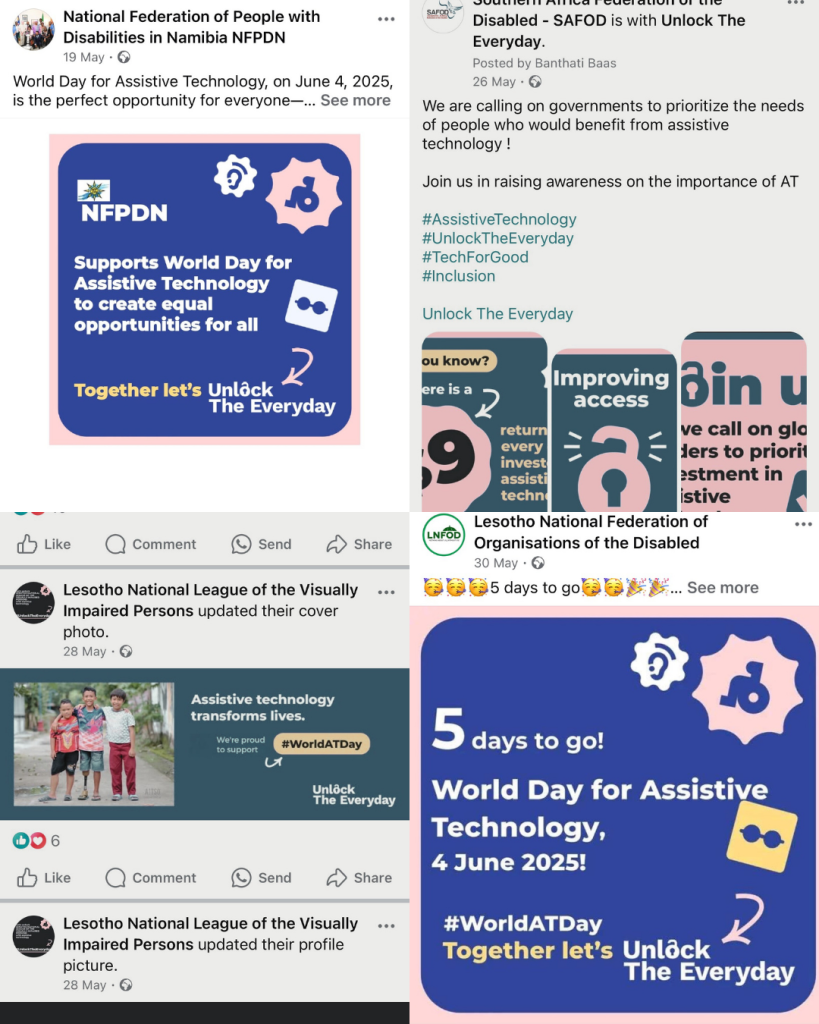
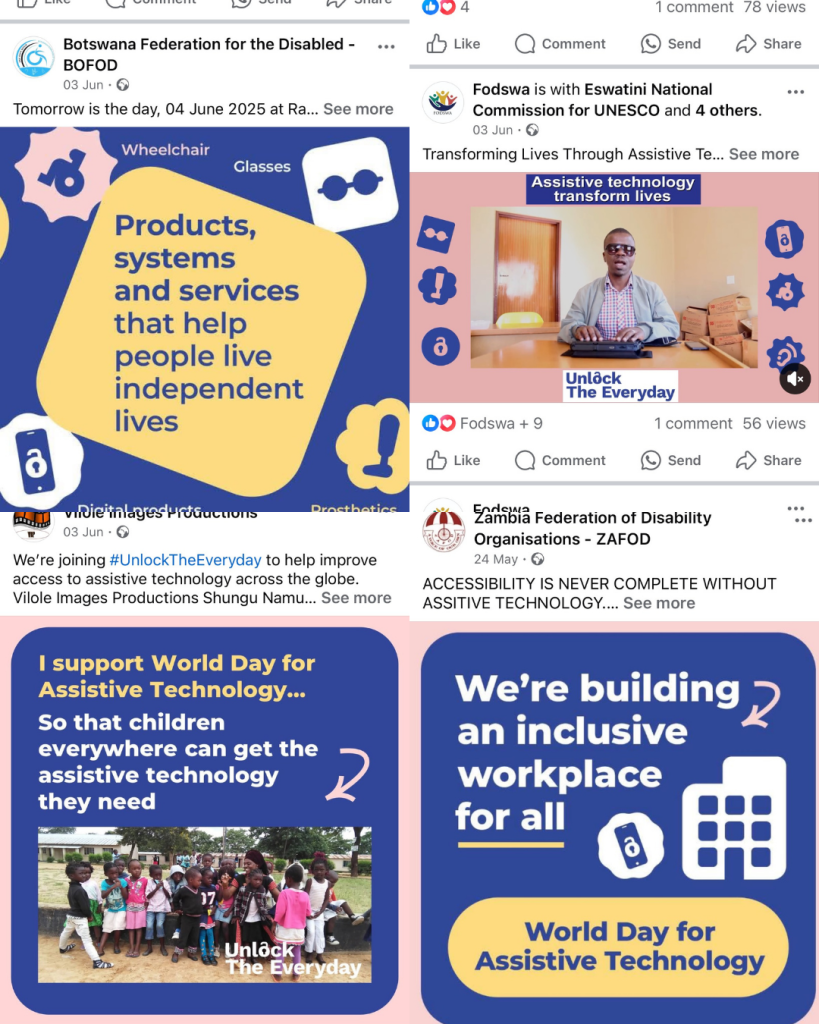
Some activities were implemented on and post commemoration of the World AT Day by all partners in the eight (8) countries including SAFOD.
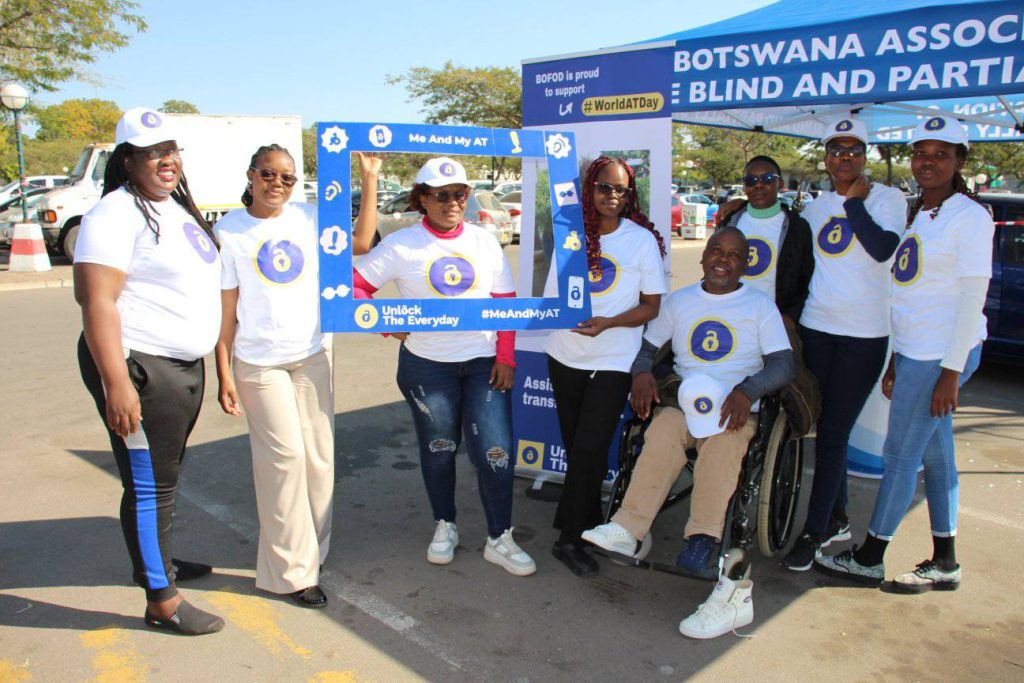
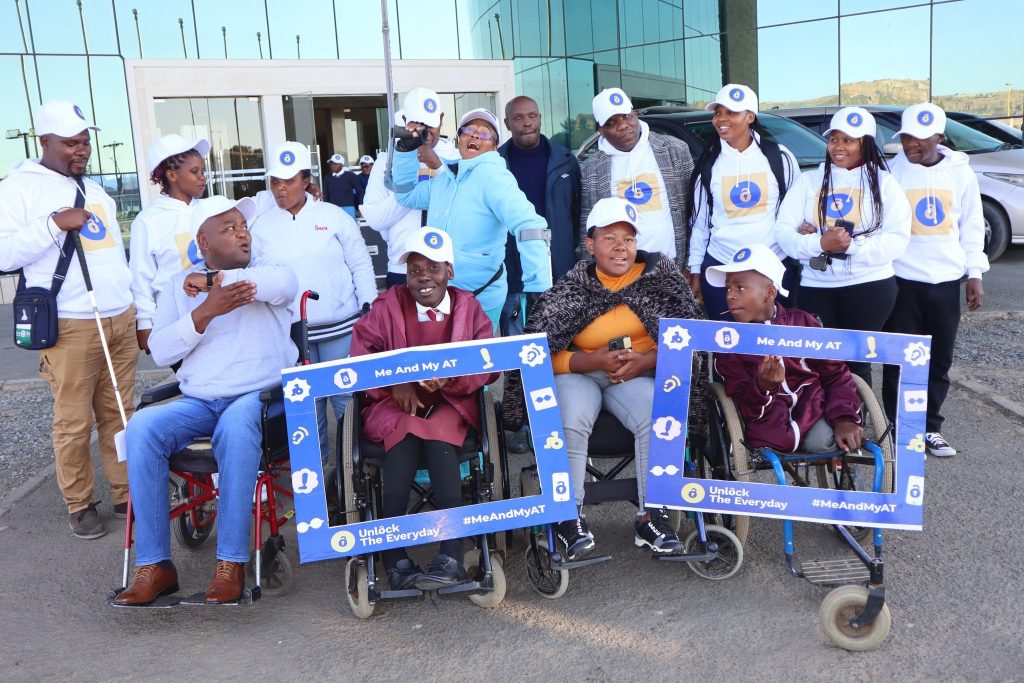
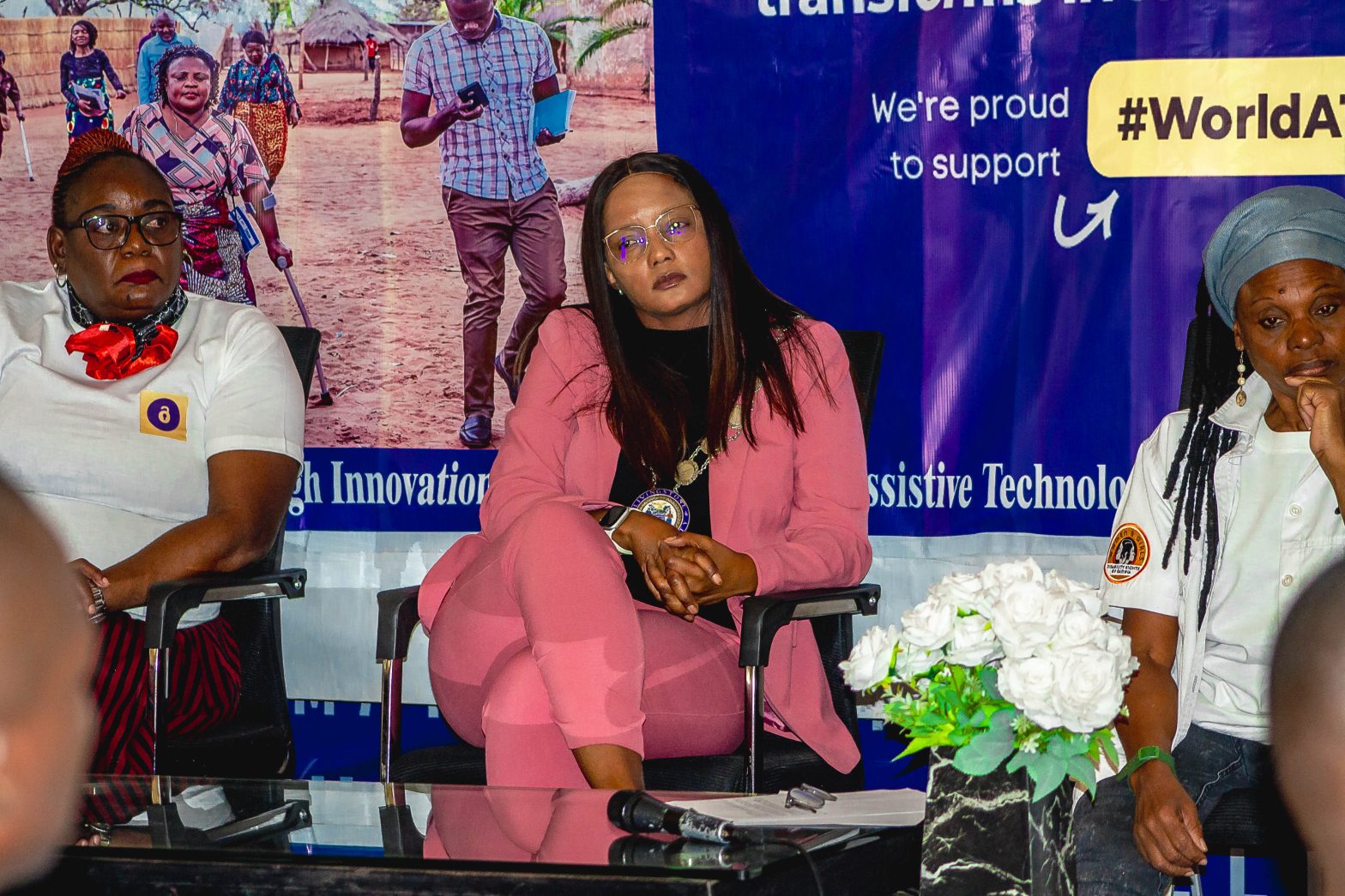
The webinar aims to stimulate multi sector dialogue on bridging innovation, investment and inclusion gap to scale Access to Assistive Technology for Persons with disabilities.
This webinar will create a platform for sharing experiences, highlighting innovations, and calling for policy commitments.
The involvement of AT suppliers and manufacturers is equally critical to ensure availability, affordability, and user-centered design. The webinar will bring together stakeholders from different backgrounds to:
– Share scalable innovations in assistive technology.
– Explore funding models and procurement pathways.
– Highlight policy and regulatory gaps.
– Foster cross-sector collaboration to accelerate access.
The targetted speakers or panelists for the webinar will consist of stakeholders from government departments (Director of Disability Unit, Ministry of State President), Organizations of Persons with Disabilities, AT manufacturers and suppliers, Development partners such as UNOPS, Academia such as Loughborough University (CEO AT Scale).
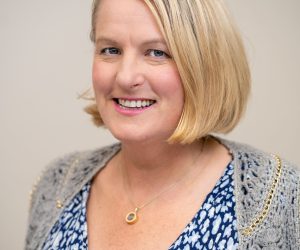
Ms. Ceridwen Johnson, Communications and Advocacy Specialist, ATScale Global partnership
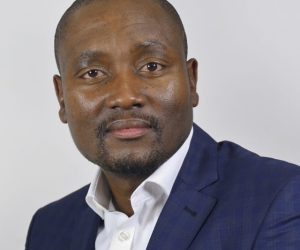
Mr. Shatu Nhlapo
Executive Director, Lesotho National Federation of Organizations of Disabled
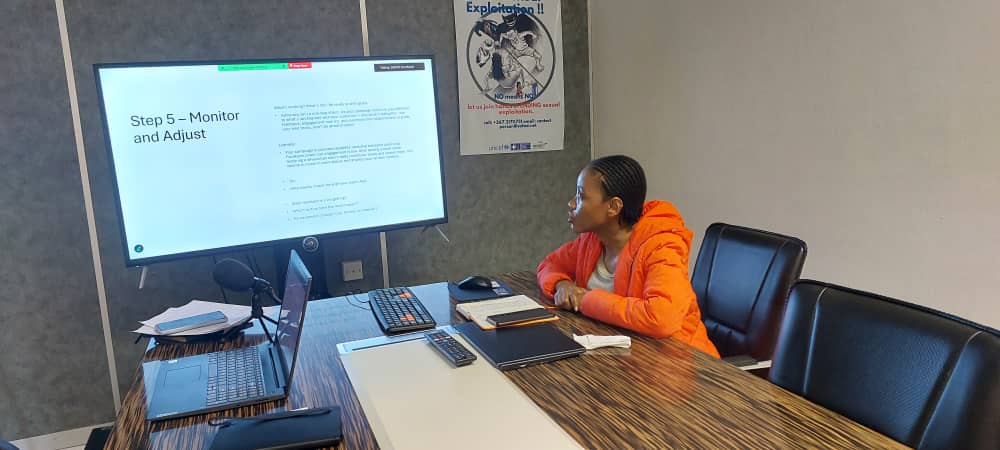

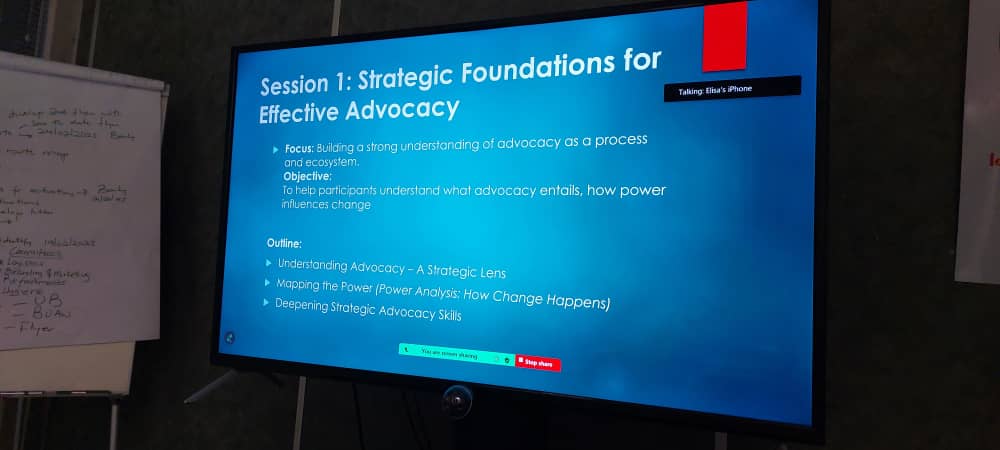
On the 13th of June 2025, SAFOD conducted a half day advocacy training and peer to peer learning session targeting all the partners in the 8 countries. The objective of the training was to drive meaningful and long term change through more strategic, collaborative and impactful advocacy. The training was conducted through three sessions; Strategic foundations for effective advocacy, crafting strategic and impactful campaigns and a session on strategic partnerships in advocacy.
i) Strategic foundations for effective advocacy; this session provided a strategic lens for understanding advocacy as a process. The participants explored the dynamics of power in advocacy ecosystems, how and how to map power.
ii) Crafting strategic and impactful campaigns and a session on strategic partnerships in advocacy; This was a practical session which guided participants through the steps of designing targeted, inclusive and results driven advocacy campaigns. Key topics included defining campaign objectives, message framing, audience targeting and measuring impact. Participants also discussed real examples and challenges from their ongoing advocacy initiatives.
iii) Strategic partnerships in advocacy; This session emphasised the importance of collaborative advocacy and building alliances.
The Webinar on Assistive Technology Business Innovations was a prelude to build momentum towards the Southern Africa Assistive Technology Expo (SAATE) to be held from 24 to 26 November 2022.
From 28th to 29th September 2021, SAFOD and Loughborough University organized a webinar to explore and share innovative business solutions that, if well supported, could help to increase access to assistive technology in Southern Africa. The webinar came after two years since SAFOD held another webinar on assistive technology in Cape Town in partnership with the University of Washington and AfriNEAD. This webinar was part of building momentum towards the Southern Africa Assistive Technology Expo (SAATE).
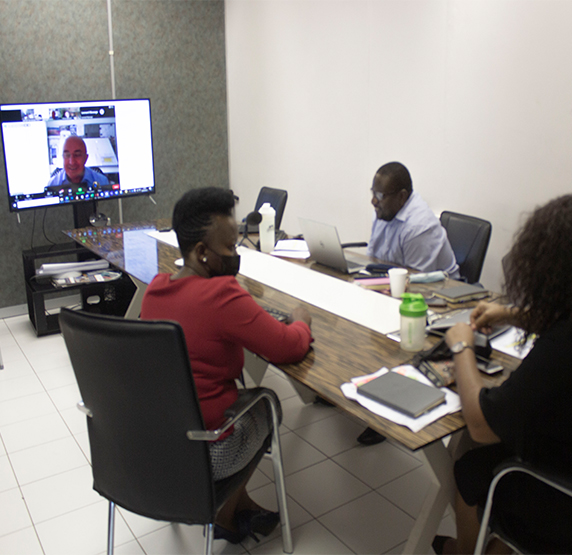
The event drew speakers from academia, research institutions, disability organisations, and small and medium-sized assistive technology entrepreneurs. With this list of high-profile speakers and entrepreneurs, we have put together all the speeches and presentations ready for viewing or downloading, from which you can learn emerging trends in assistive technology innovations and entrepreneurships.
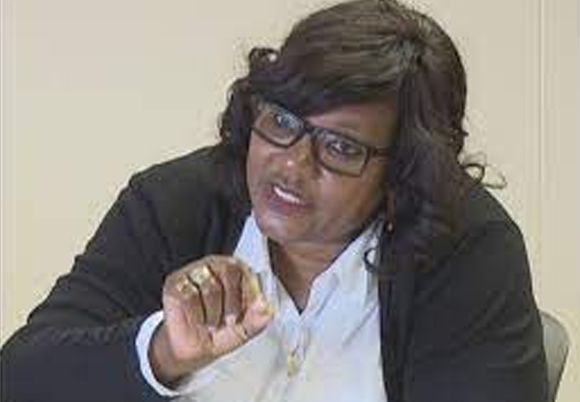
In her keynote address, Hon. Manombe-Ncube highlighted the importance of supporting designers and manufacturers in their noble aim to uplift the living standards of people with disabilities.
“We must work strategically and intentionally if we want to make a difference, and I can see that you are already doing so.”
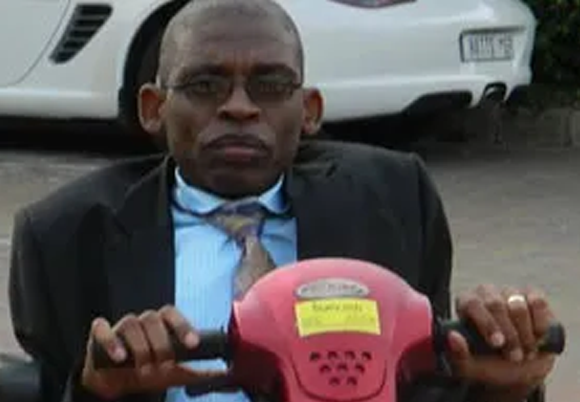
In his welcoming remarks, he emphasized the significance of assistive technologies in enabling productivity, independence, and inclusion of persons with disabilities in the society or community. He said it was, therefore, high time that our policymakers were also well informed about how best to domesticate or implement Article 9 of the Convention 3 which focuses on Accessibility.
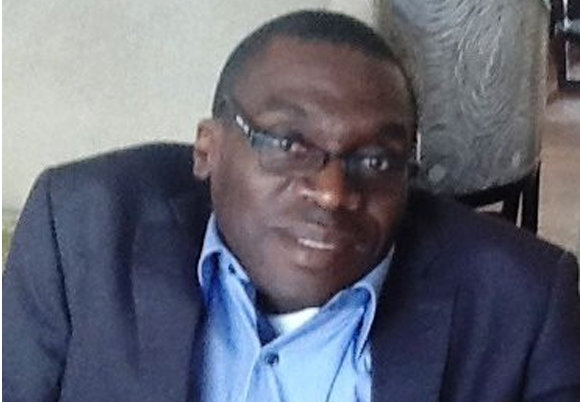
His duty was to state and discuss the aim and main objectives of the webinar as follows: to raise awareness of available resources related to business innovations; to provide examples of best practices for sustainable and inclusive businesses, and to identify steps towards the facilitation of resources and training to support sustainable and inclusive business.
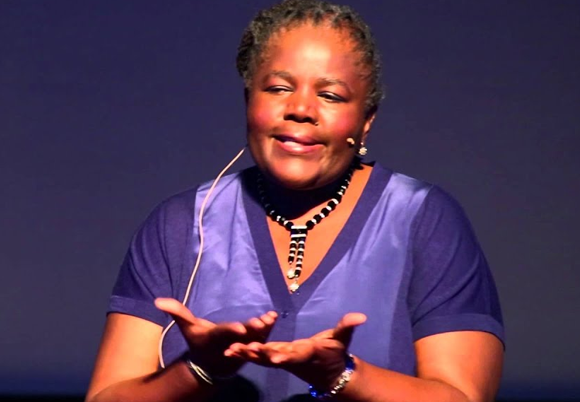
She delivered a presentation in which she highlighted that Assistive technology (AT) is crucial for inclusive achievement
of each of the Sustainable Development Goals. Prof Mji said that there is need to develop regional databases to improve access, leverage on partnerships and the need to develop of an AT hub in Africa to increase access.
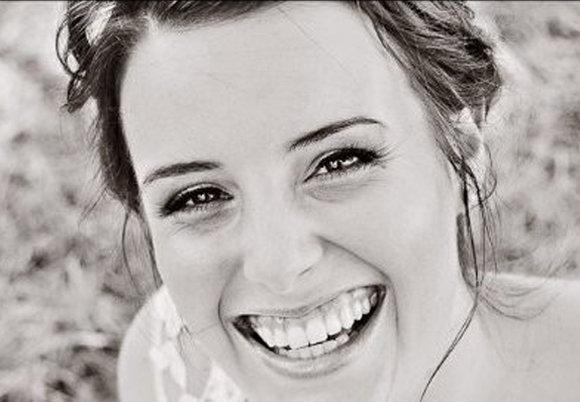
Kim Viljoen said in her presentation that Mobile phones have the potential to be bespoke and cost-effective tools for persons with disabilities, clustering together multiple assistive technologies in a single device. She pointed out that a disability gap exists in mobile ownership and the gap appears to be more wider in ownership of smartphones.
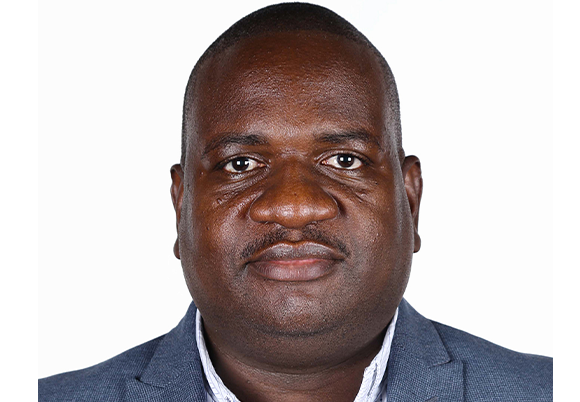
In his address he shared an overview of SAFOD’s long term vision with regards to assistive technology. According to George’s presentation, he alluded that SAFOD’s overall vision is to act as a holistic advocacy institution for
people with disabilities in Southern Africa; provide advice and support across all aspects of everyday living and working, including assistive technology.
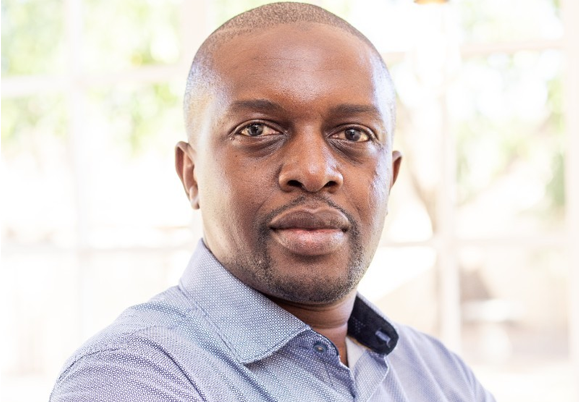
He made a presentation about the first rechargeable hearing aid battery developed by Deaftronics. Tendekayi said that the battery is solar powered and can be charged via the sun, house light or cellphone plug. Deaftronics also have an application called DREET a health care program that seeks to break down these barriers to by taking holistic approach to solving the challenges posed.
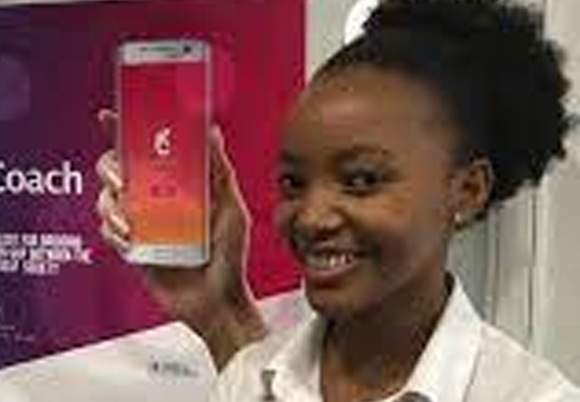
Lucia Otsetswe is the founder of ATRD a company which developed an application that teaches Botswana sign language called Sign Coach. Sign Coach app was developed mainly to bridge the gap between the hearing and deaf members of the society. Lucia also shared the vision of ATRD which is to promote inclusion, by providing e-content for learners with special educational needs.
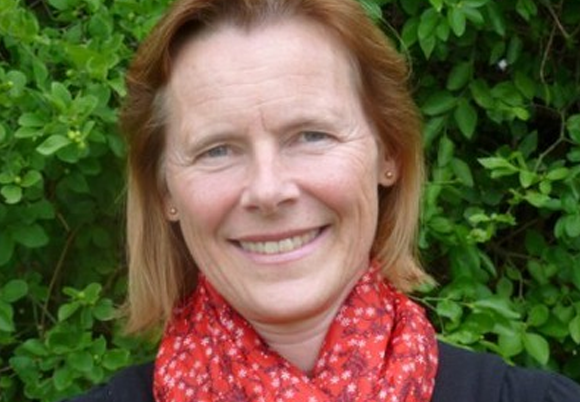
She delivered a presentation about an innovative tool for screening hearing impairments using commercially available tablets, headphones, and dedicated software for gaming. Tone Oderud outlined the objectives of this project saying they want to develop affordable screening tools and innovative hearing devices appropriate for children in low-resourced settings.
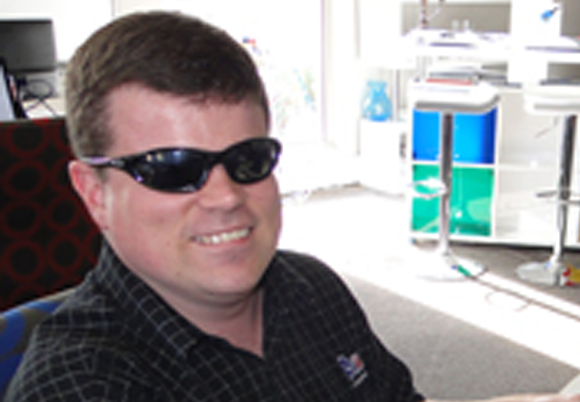
He spoke about how the Editmicro, a leading supplier of technology solutions in Souther Africa and across the Africa, is impacting the lives of persons with Disabilities particularly in the education sector. It develops alternative and cutting-edge technology for learners of all abilities. Since 1991, it has used technology to aid curriculum delivery.
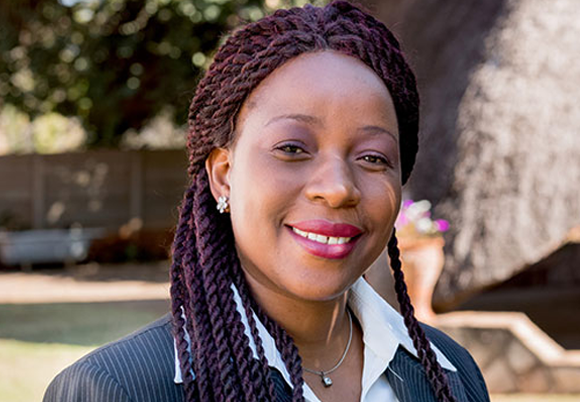
In her presentation, Deborah Tigere discussed the ear mould lab in Zimbabwe, the challenges faced and as well as advantages. Above all she highlighted the sustainability of this project whereby the income from the lab was used to procure more consumables and replacing broken down equipment – subsidized services, affordable fee structure.
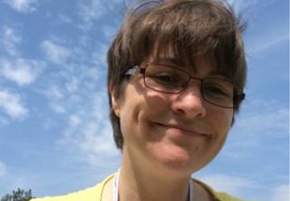
Catherine Holloway’s presentation was titled-“building an assistive technology innovation ecosystem.” She presented about assistive technology, giving a brief introduction of what AT is and discussed Africa’s first assistive technology accelerator program called Innovate Now. She also highlighted the achievements of the program.
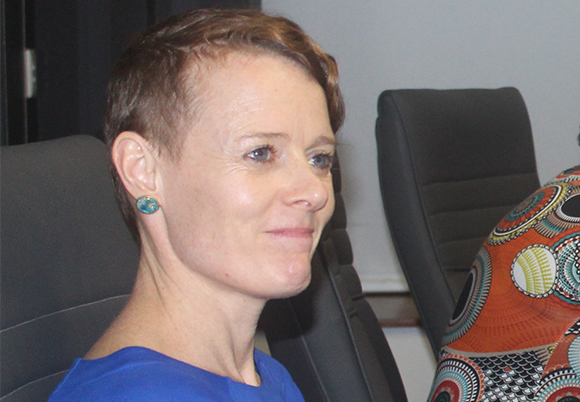
In her recorded presentation, Rebecca Matter gave an overview of the challenges in the assistive technology sector in Southern Africa and the some of the innovations for increasing access. Some of the challenges she briefly discussed include the is the inadequate and fragmented funding and investment, the shortage of skilled assistive technology personnel and a weak policy environment.
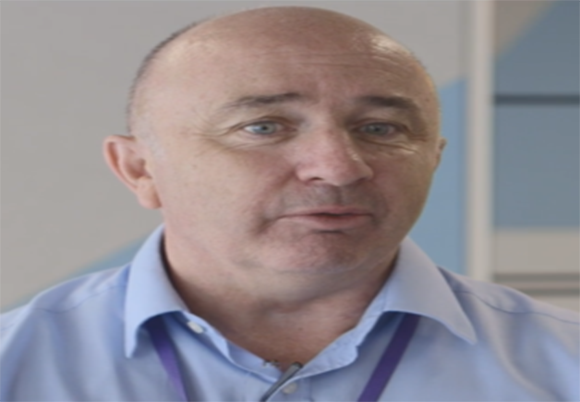
George Torrens delivered a presentation titled “Supporting sustainable inclusive arts and crafts in Southern Africa” along side Simon Downs from Loughborough University and Timothy whitehead from Aston University. They discussed the Business Integrated Industrial Design Innovation model (BIIDI) and documented key outcomes from a series of sponsored activities with SAFOD.

He delivered a presentation about SAFOD’s Assistive Technology Information Mapping project that was funded by Google under the Google Impact challenge titled “big ideas that will use technology to expand opportunity and independence for people with
disabilities”. He highlighted that collaborations with stakeholders and those who were present at the webinar was crucial.


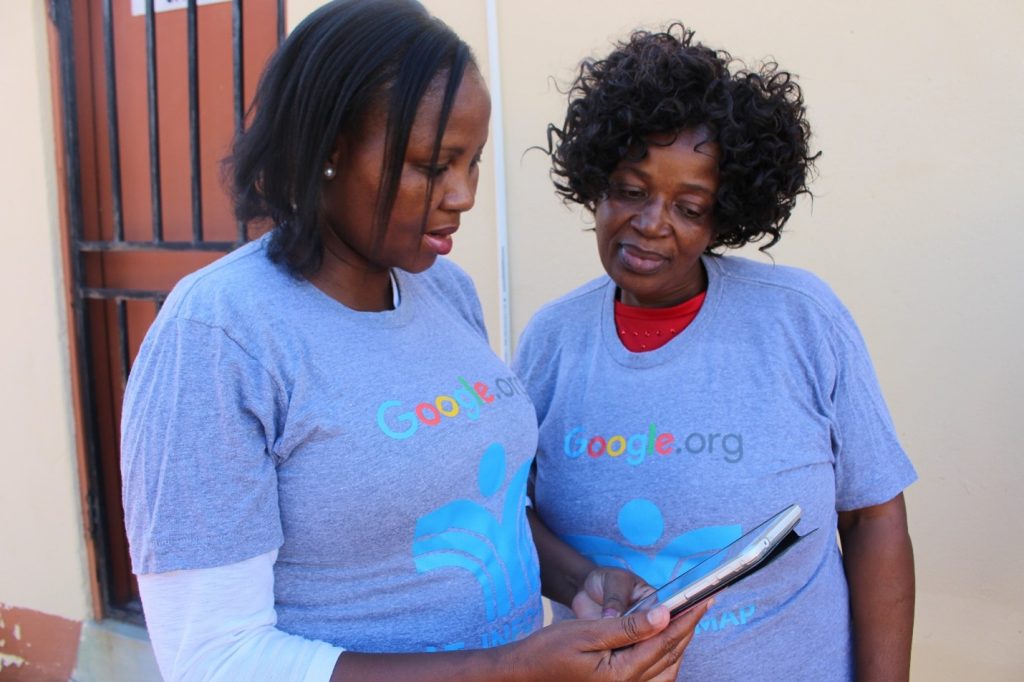
Meanwhile, if you want to appreciate AT suppliers and disability services in ten southern African countries, you can view the listing on SAFOD’s app. Then, click on Google Play or AppStore icons below to start downloading and installing the app. And don’t forget to follow the installation instructions here.
Or do you prefer an electronic e-directory/publication? Now available here.
The Assistive Technology Business Innovations was a prelude to build momentum towards the Southern Africa Assistive Technology Expo (SAATE). Stay in touch to learn more about the the upcoming SAATE from 24 to 26 November 2022.
© 2021 All Rights Reserved | Southern Africa Federation of the Disabled (SAFOD)